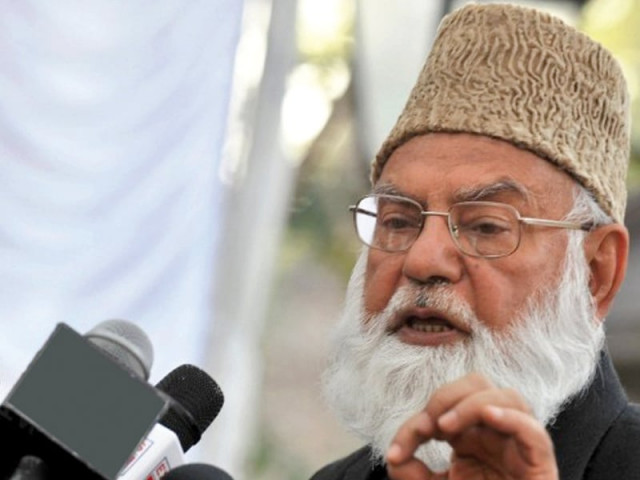Battling the monster of sectarianism
The CII seeks to organise a movement against the sweeping threat of sectarian violence in the country.

Battling the monster of sectarianism
According to Qazi Hussain Ahmed, former chief of the Jamaat-e-Islami, nearly 40 religious leaders will attend the conference. He has made it clear that there is no target entity in front of the session: it will not be opposed to the Defence of Pakistan Council headed by the Jamaatud Dawa and the foremost self-declared sectarian “tanzeem”, Sipah-e-Sahaba with a merely changed name, Ahle Sunnat Wal Jamaat. It will be titled ‘Ummah Unity and Islamic Solidarity’ and it will address concerns arising out of the incidence of sectarian killings in Balochistan, Gilgit-Baltistan, Karachi and some tribal agencies. According to the former JI chief, “religious scholars will try to extinguish the fire of sectarianism and save innocent lives”.
Welcome as the conference is in this environment of helplessness, the dice are loaded against it if you look at the record of past such efforts. Every year, clerics of all denominations get together before the onset of Muharram to vow peace within Pakistan, but usually to little avail. In fact, the last time such a meeting was held in Lahore it ended with more conflict; and the convening authority, the well-meaning PML-N government, became the target of vituperative attacks from both the brawling sides. Will the clerics succeed this time? When the CII was headed by a non-clerical scholar, it made no headway. Perhaps, this time the more powerful elements from the JUI-F and the grand Deobandi consensus will achieve something.
A fact recognised by all in Pakistan is that the people of the country are not sectarian-minded. Before jihad took hold of Pakistan and extremist clerics became threatening, there was considerable harmony between the sects. Muharram was not the season of sectarian violence and mayhem. Today, the world understands that the intensification of the sectarian feeling among the clerics is actually a result of a war relocated from Pakistan’s neighbourhood in the Gulf. And the wheels of this evil war are anointed with generous funding which goes into seminaries that teach hatred rather than peace. Will the Ummah conference succeed in persuading the various clerical formations to give up violence against one another? We hope that it will not end routinely by calling on the government to take steps that we all know it has lost the capacity to take.
Terrorist organisations, like the Lashkar-e-Jhangvi, will take a lot of persuasion by the elders who will gather in Islamabad under the aegis of the CII. The killers have been at it for the past several decades; and Qazi Hussain Ahmad knows it better than anyone else. His efforts to prevent violence against the diplomats of Iran in the 1990s had borne no fruit. His successor, Dr Munawar Hasan, is also wedded to the anti-sectarian creed of the founder of the Jamaat and should be seen, in this context, as a positive force for the achievement of the group’s objective. We know that the JUI chief, Maulana Fazlur Rehman, too, holds moderate views and has not paid heed to the viciously sectarian groups that arose in Jhang and nearby districts of Punjab in the mid-1980s, not a little encouraged by then military ruler General Ziaul Haq.
The truth is that the genie of sectarianism got out of its bottle in the Middle East and hopefully will be bottled there in some future time and at the risk of some states disappearing from the scene. But in Pakistan, the genie is out and wreaking havoc because of the declining writ of the state which started declining over a quarter century ago when Pakistan embraced proxy jihad and used religious fanatics as cannon fodder.
Published in The Express Tribune, May 20th, 2012.















COMMENTS
Comments are moderated and generally will be posted if they are on-topic and not abusive.
For more information, please see our Comments FAQ